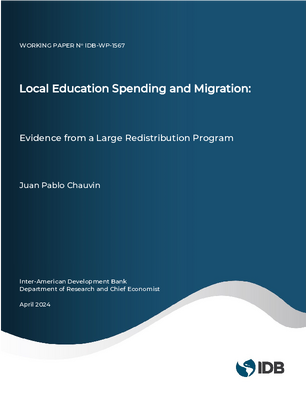Local Education Spending and Migration: Evidence from a Large Redistribution Program
Date
Apr 2024
This paper studies the effects of changes in local public education budgets on individual schooling attainment and migration, as well as on local labor market outcomes. I leverage the introduction of FUNDEF, a large federal program that redistributed public education finance across Brazilian municipalities in the late 1990s, as a source of exogenous variation. Using a cohort-exposure design, I find that, at the individual level, doubling the program-related public education budget led to a 1.4 percentage point increase in the likelihood of completing primary school, and a 0.5 percentage point decrease in the likelihood of staying in the local labor market among exposed cohorts, on average. The mobility effects are concentrated among individuals educated in municipalities that received a positive budget shock as a result of the program, which were also characterized by relatively worse local labor market conditions. At the local labor market level, difference-in-differences estimates suggest that higher public education budgets were associated with lower employment rates and average wages, suggesting that the “brain drain” effect depressed local labor demand in the long run.
Generative AI enabled





